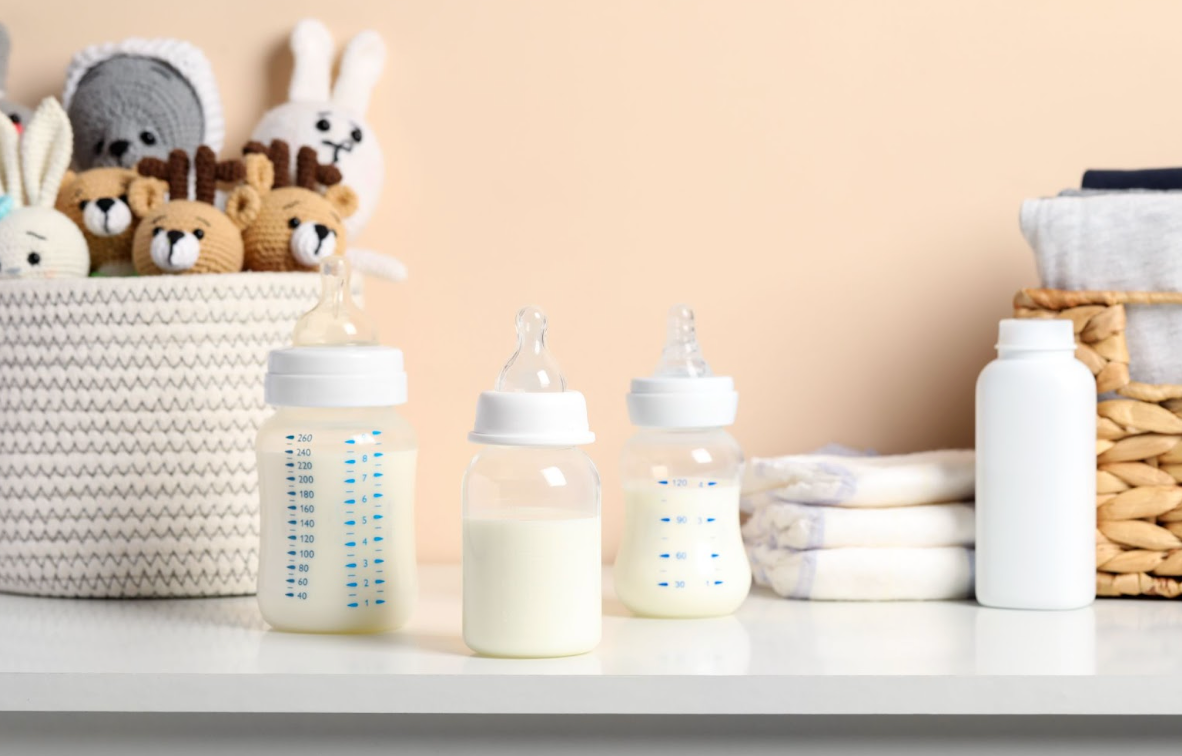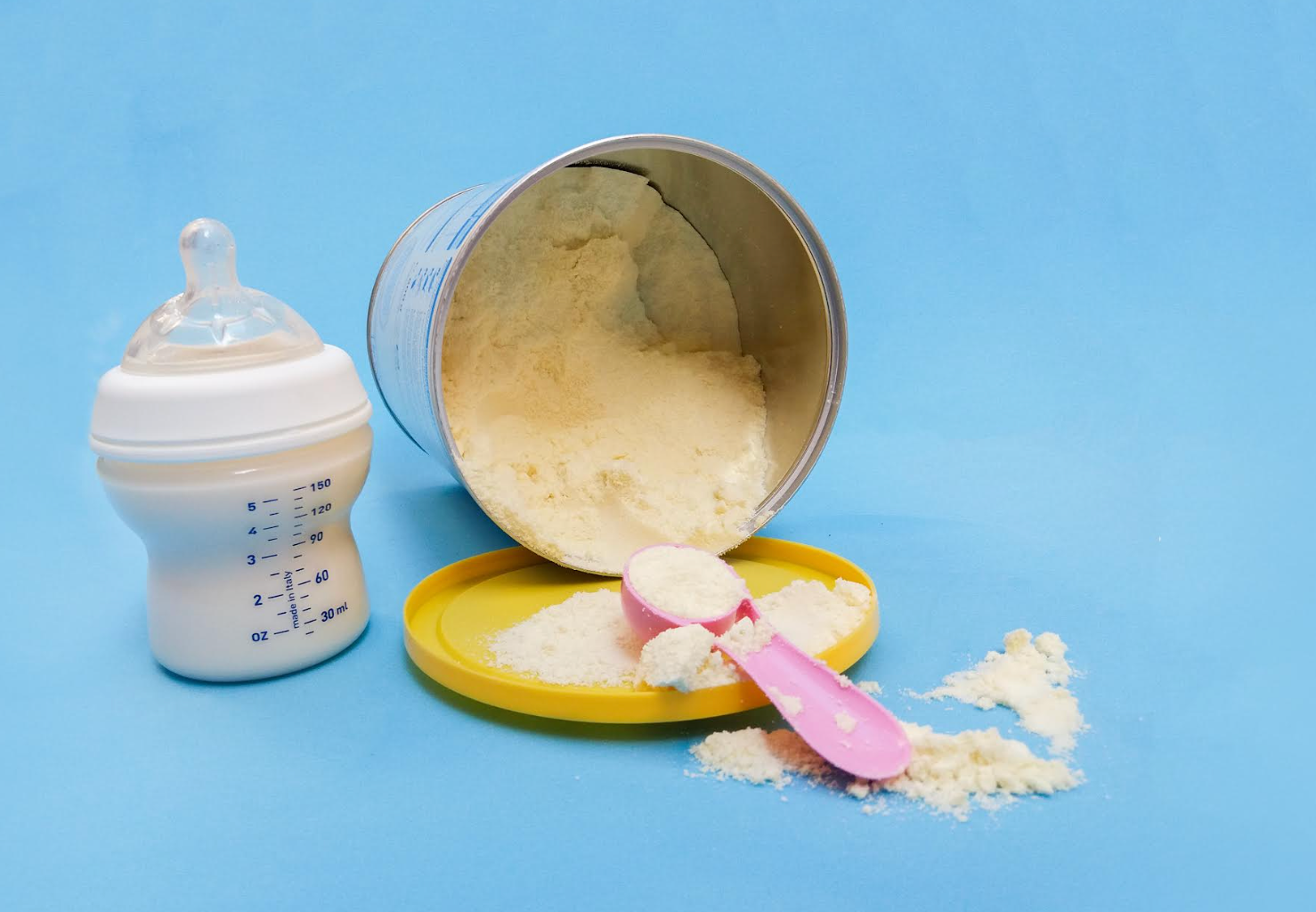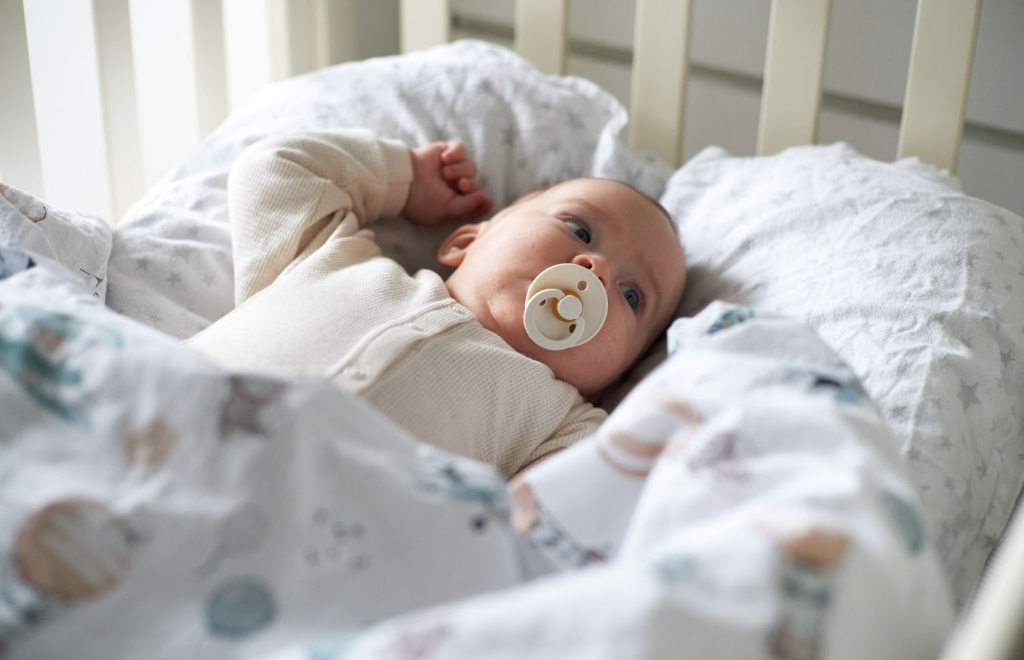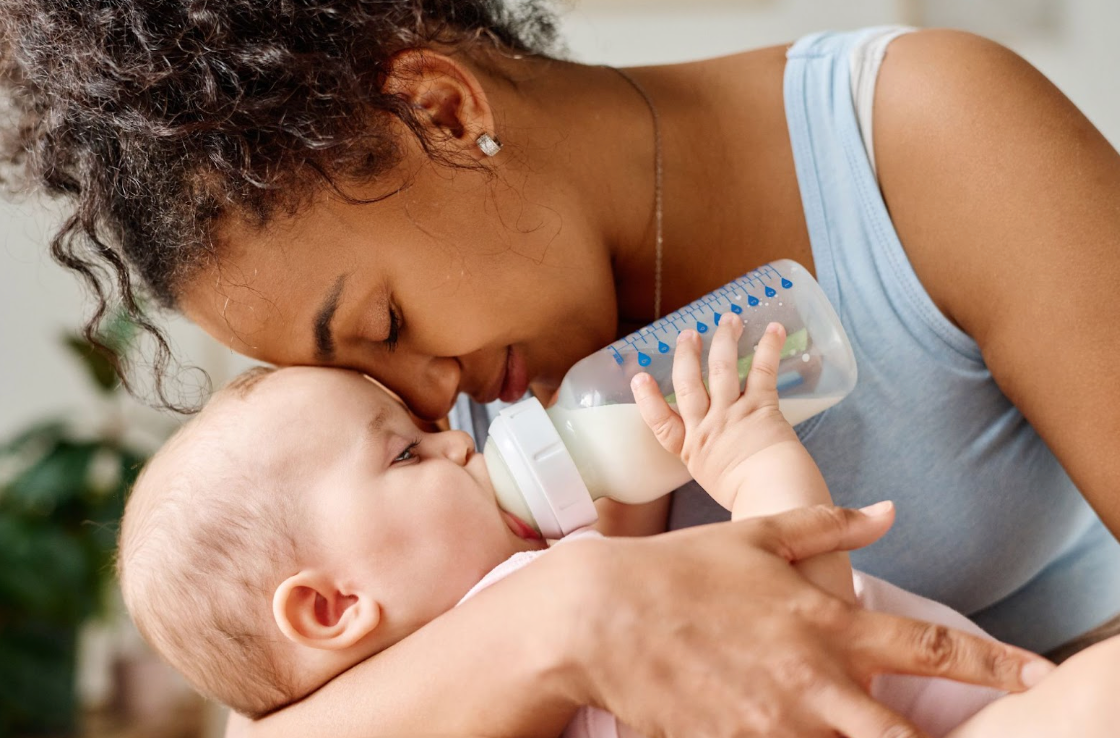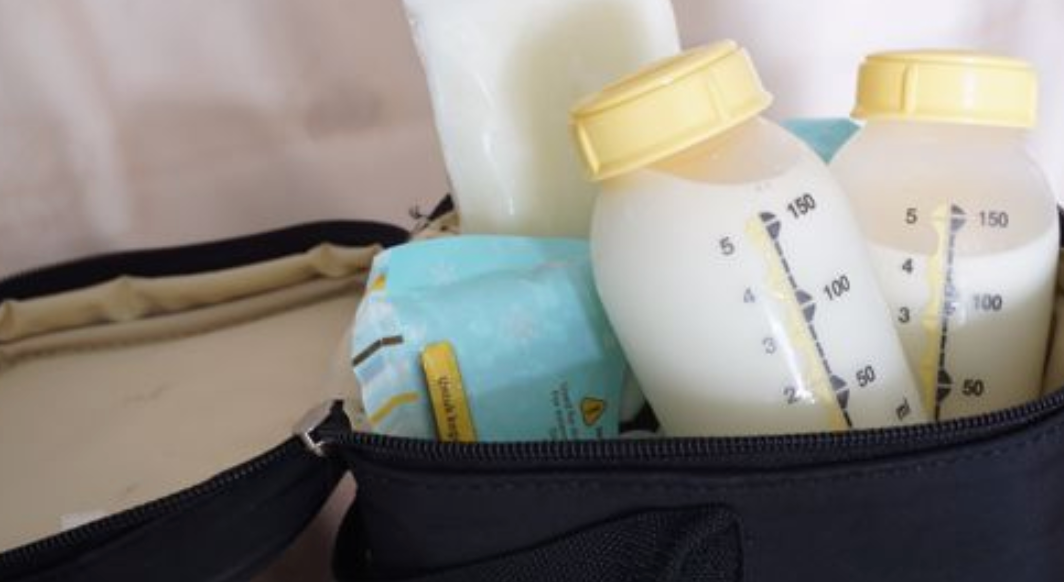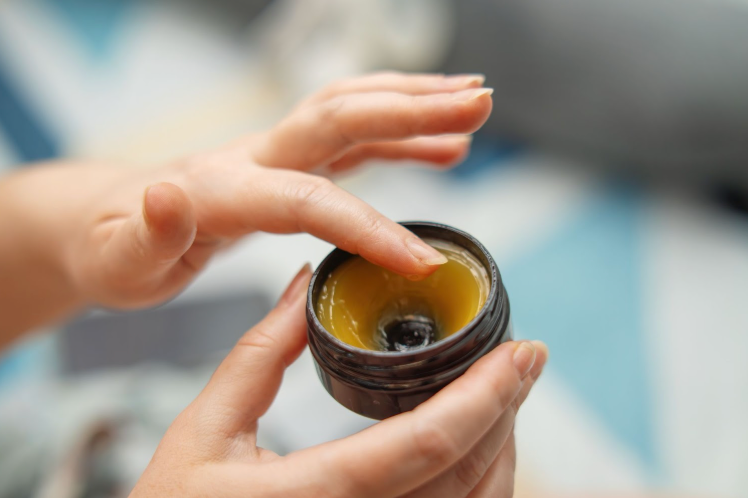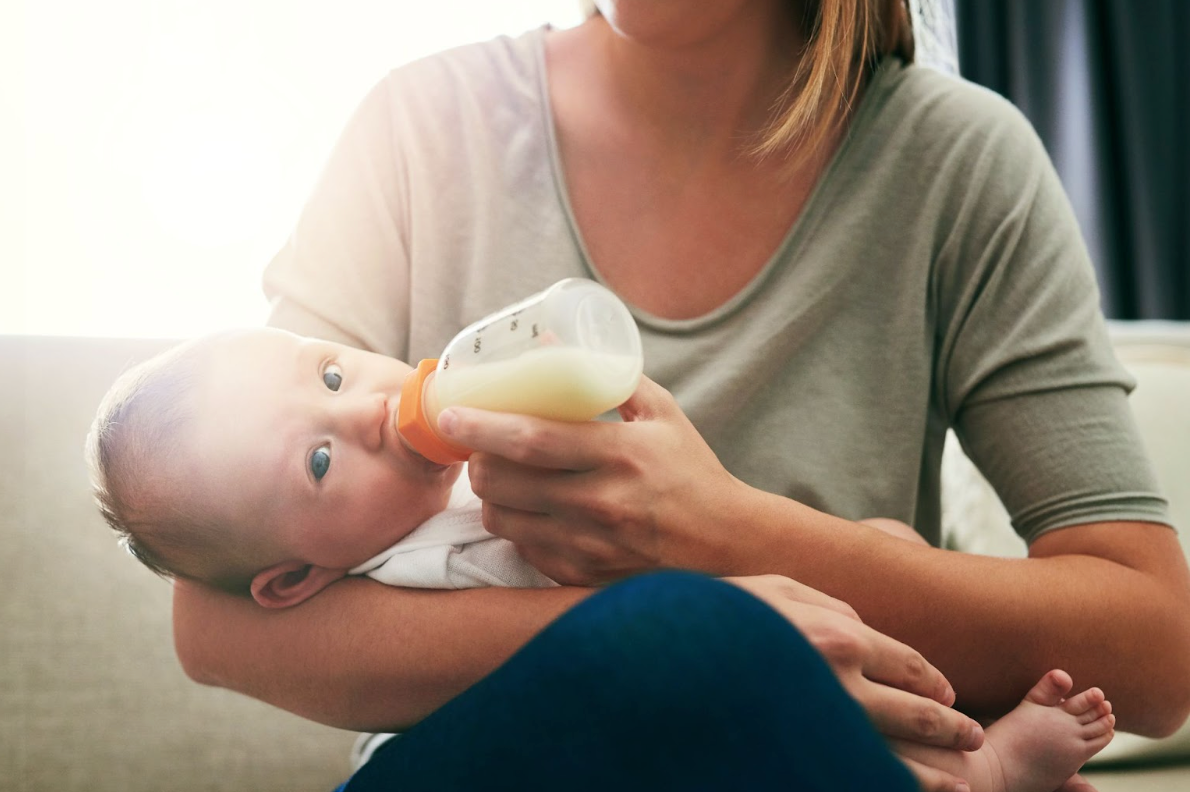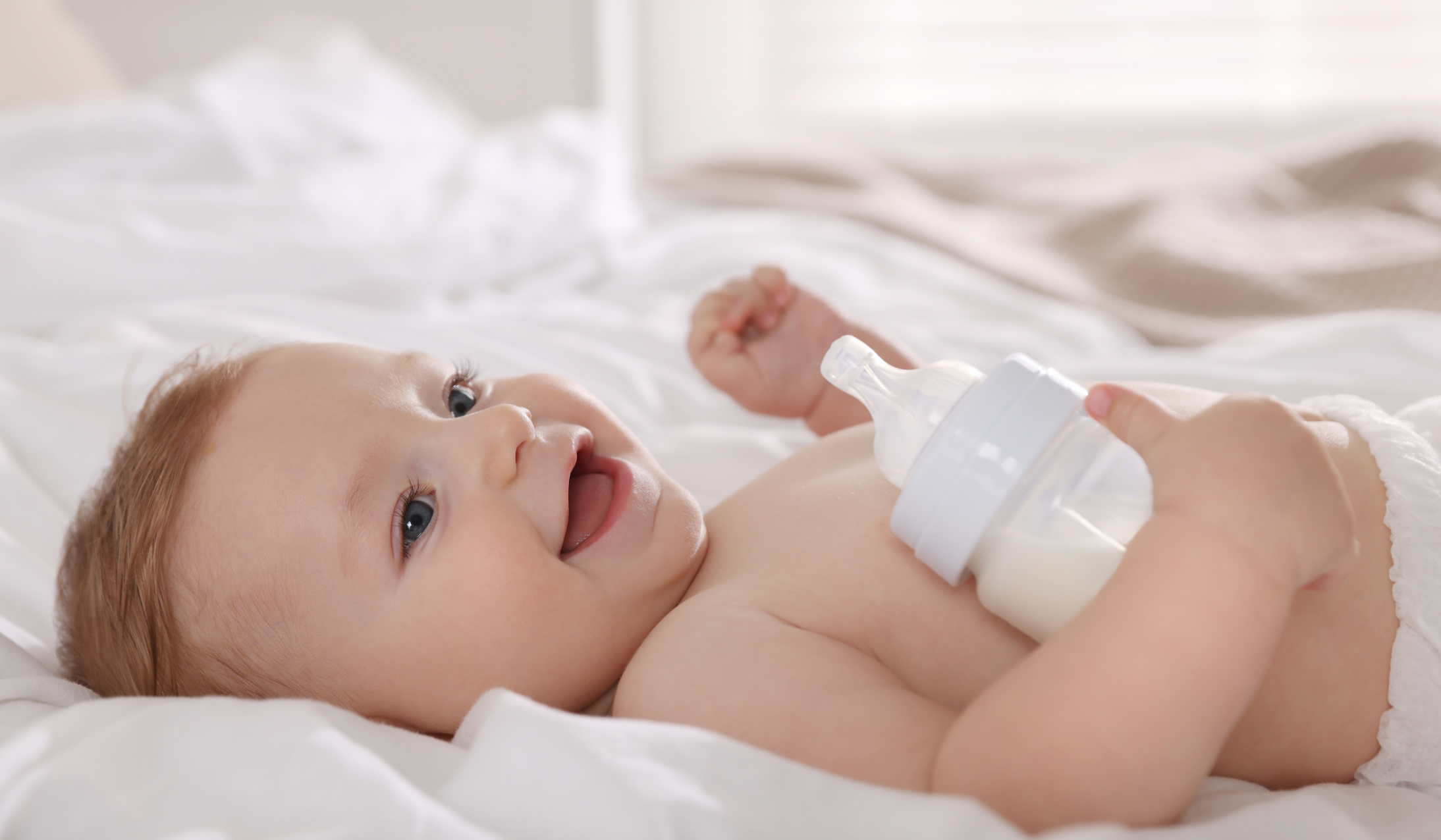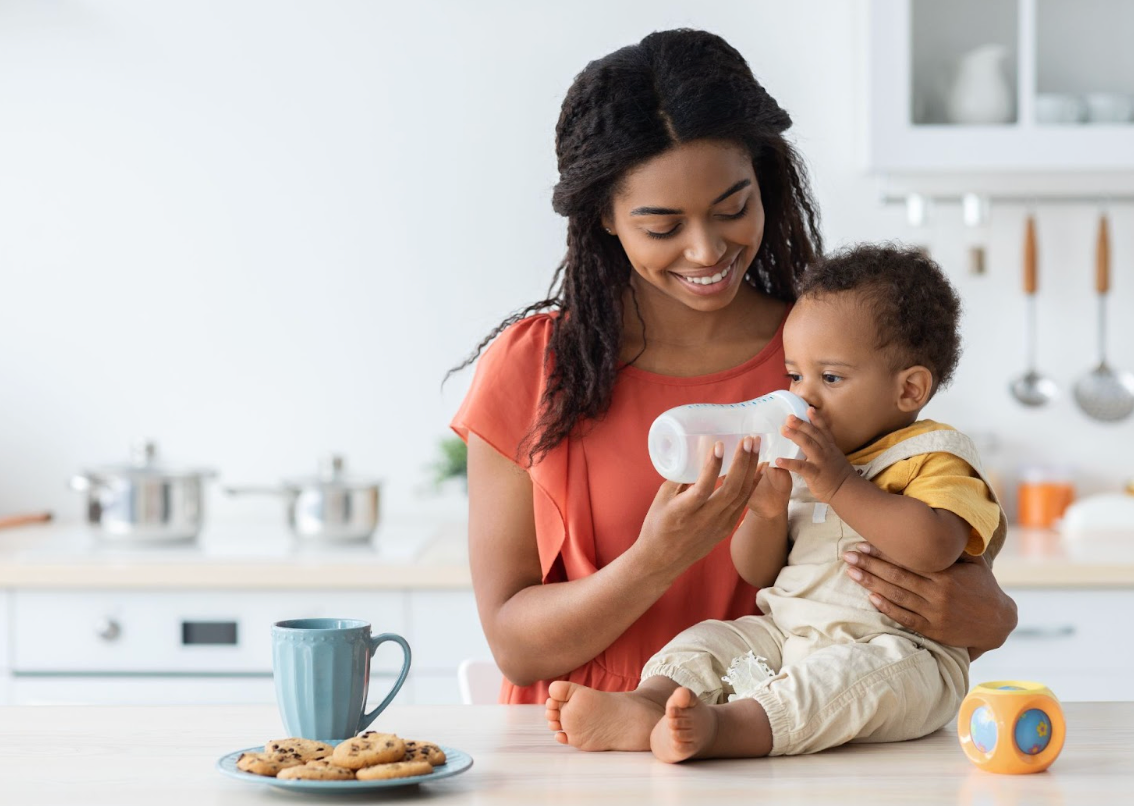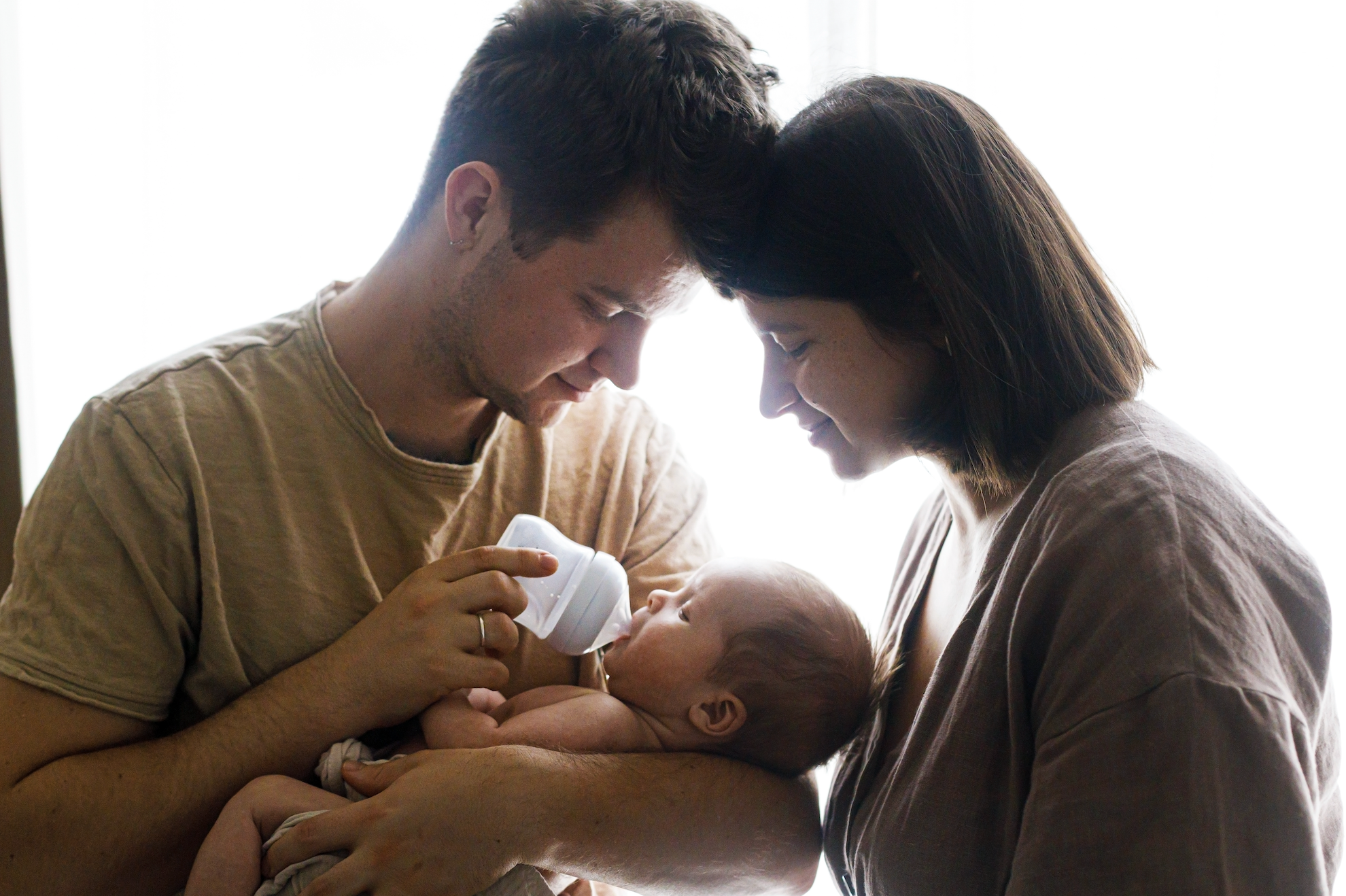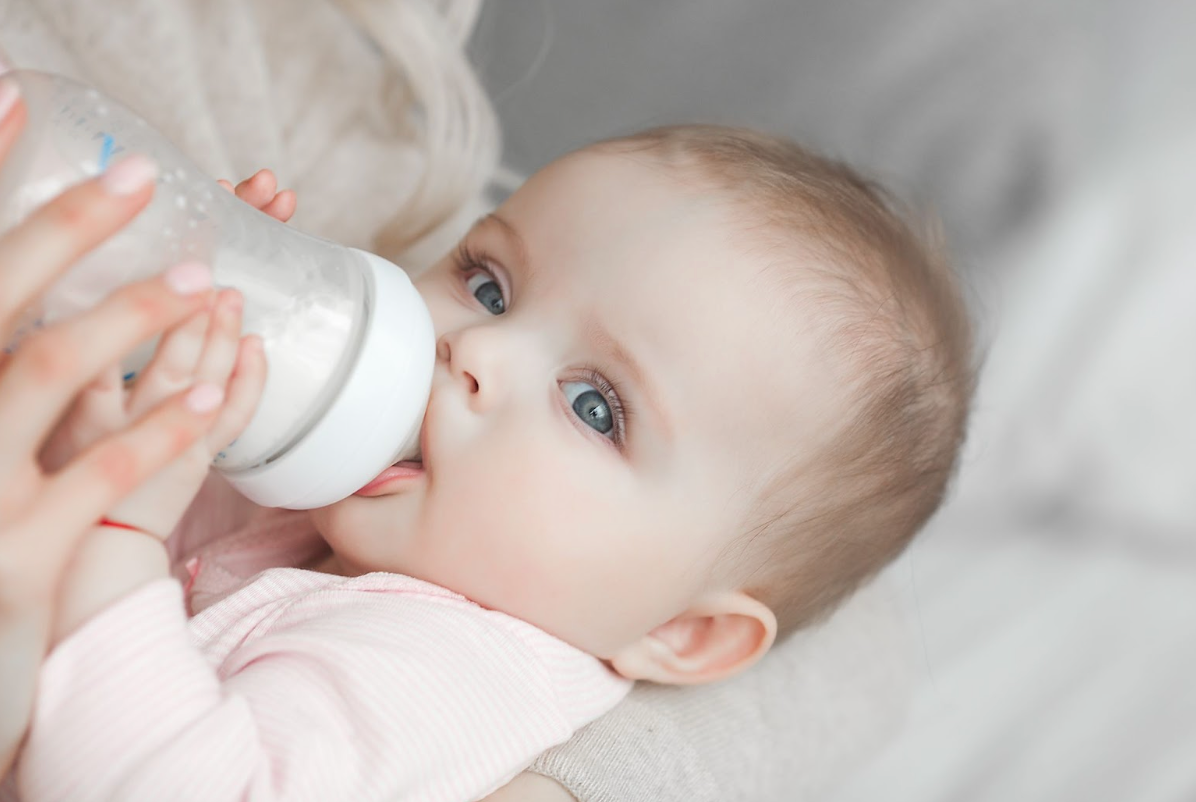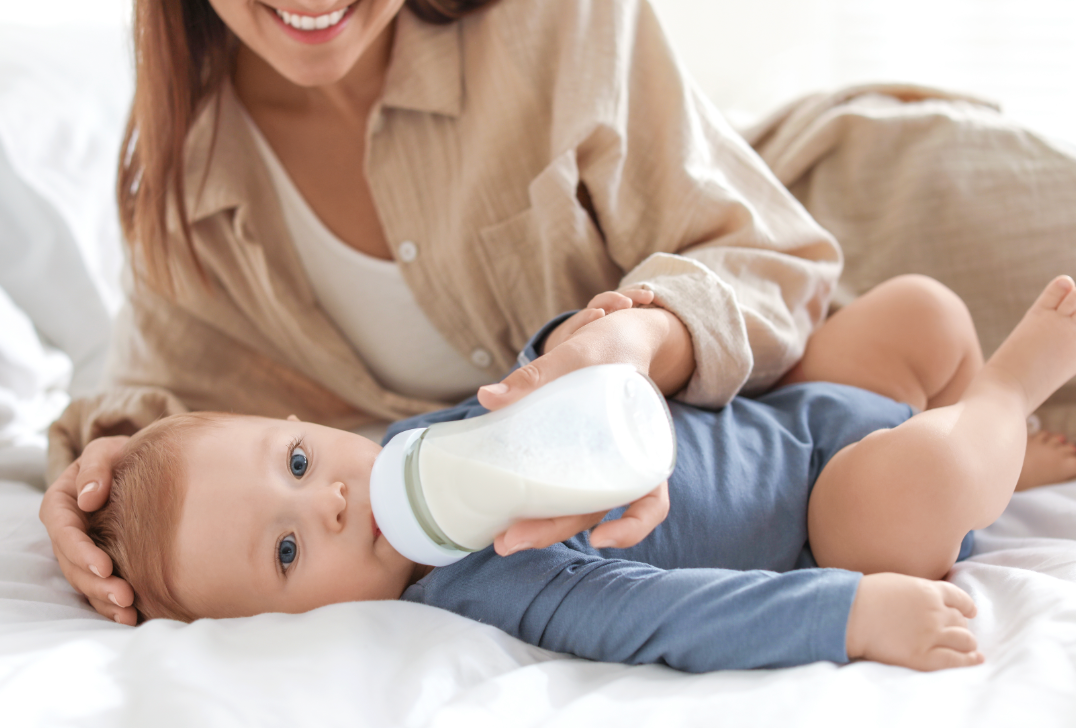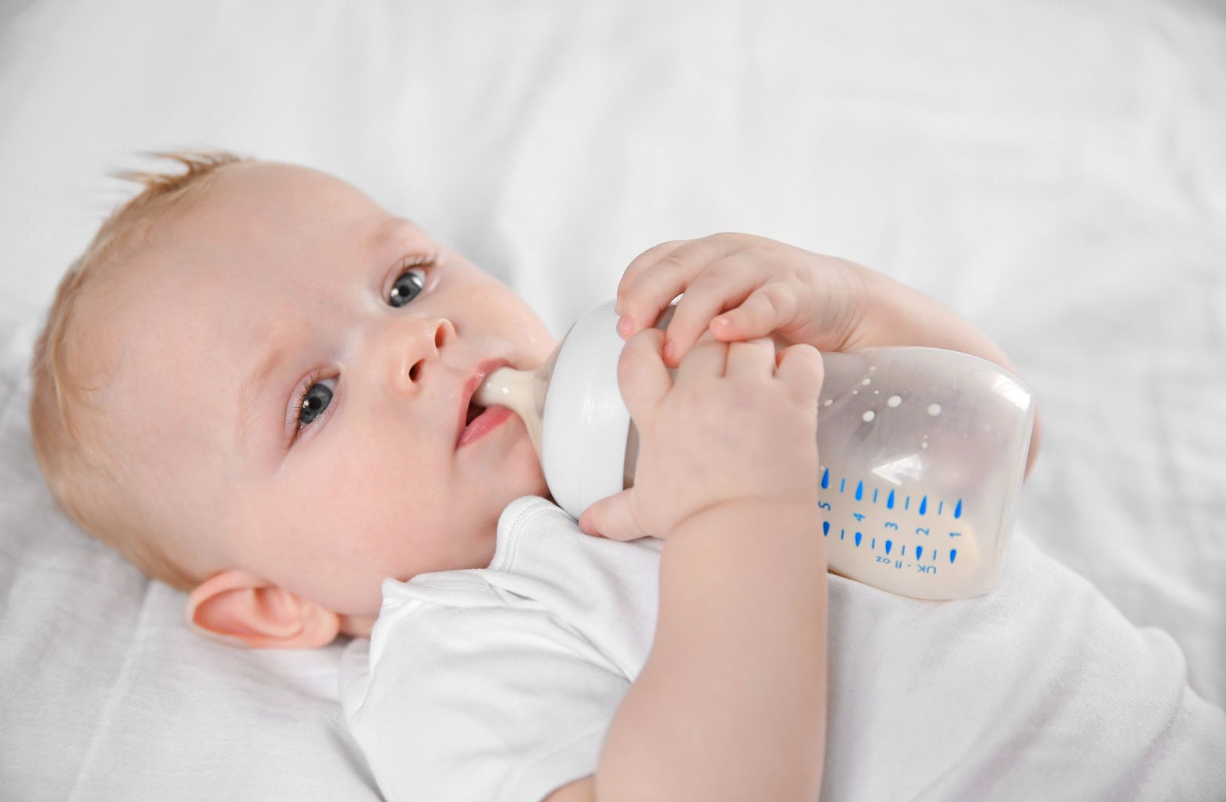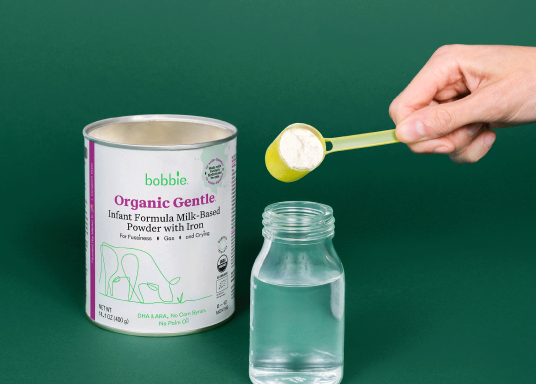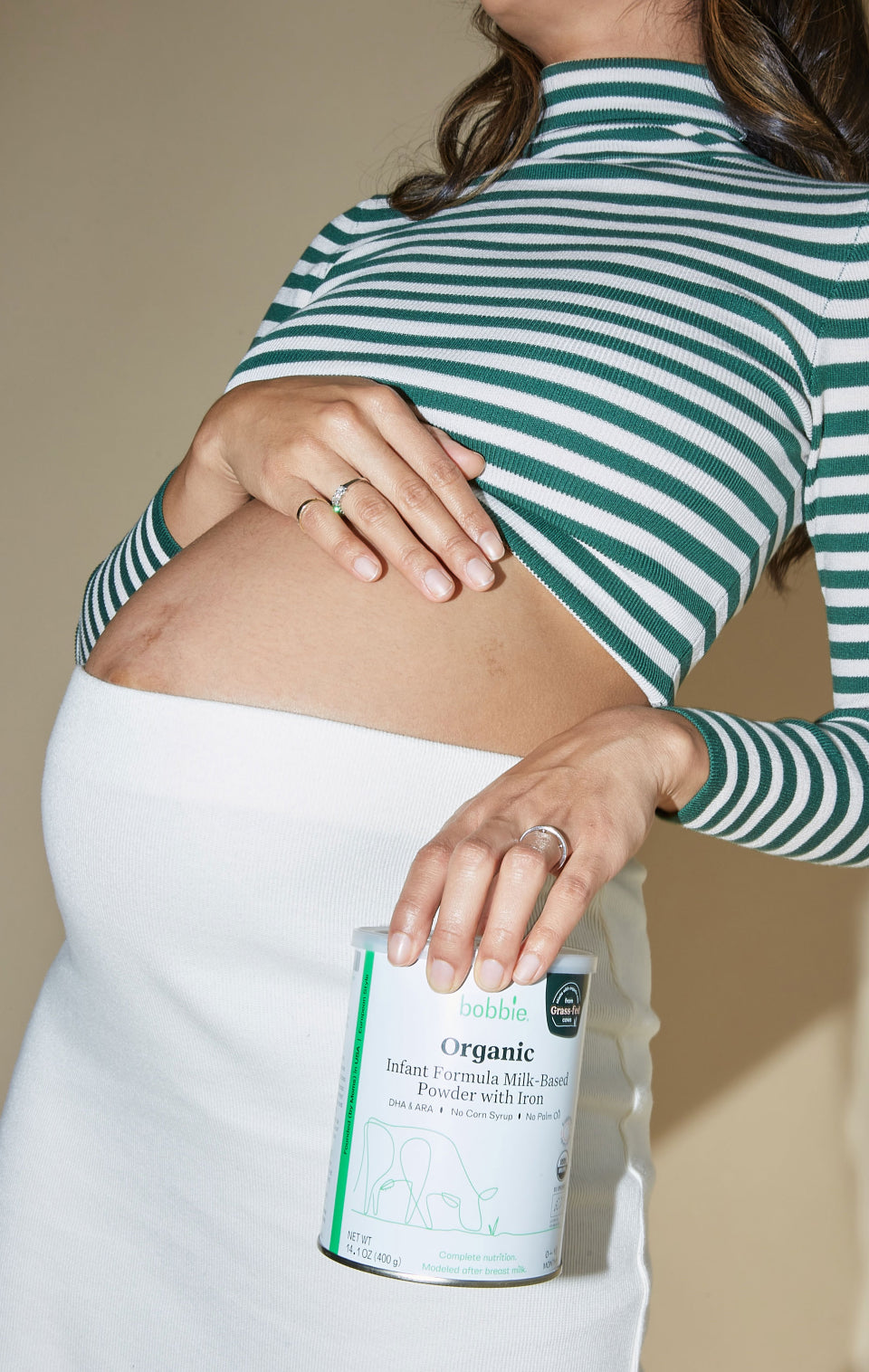Published September 15, 2025
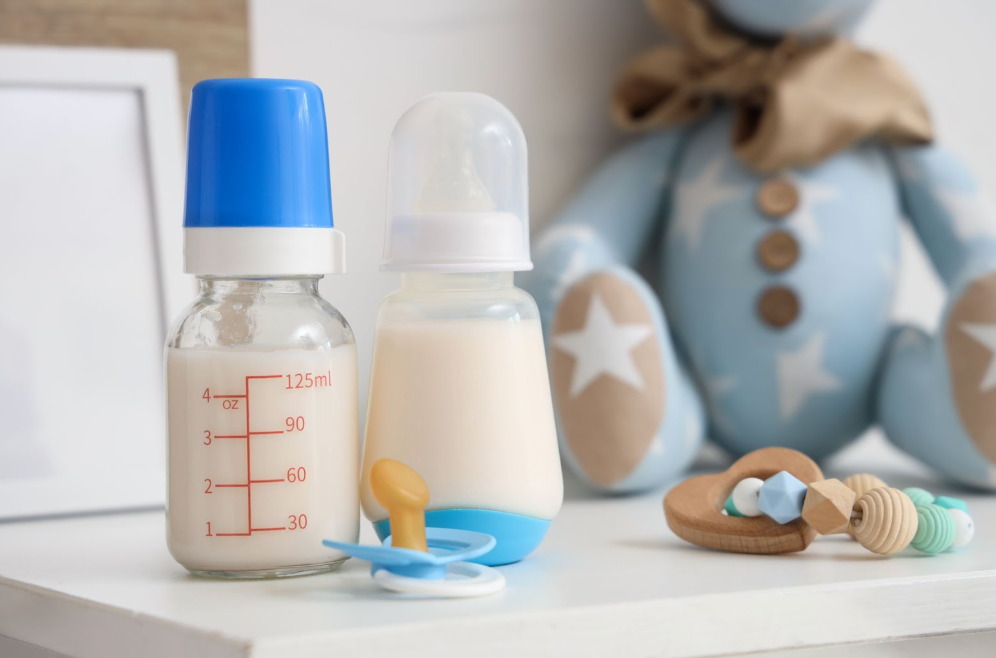
Glass vs. Plastic Baby Bottles: How To Choose What’s Best for Your Family
Feeding your baby comes with a lot of decisions, and one of the first is choosing which kind of bottle to use. For many parents, that means weighing the pros and cons of glass versus plastic. And there’s no single “right” answer — just the choice that best fits your family’s lifestyle, values and priorities.
We're breaking down the differences between glass and plastic bottles side by side, so you can feel confident in making the decision that works for you and your little one.
Why Baby Bottles Matter (No Matter How You Feed)
Regardless of how you plan to feed your baby, bottles are an important part of the journey. Whether you’re exclusively formula feeding, combo feeding or just keeping a few on hand for the occasional pumped breast milk, bottles can play a big role in daily routines. Many breastfeeding families rely on them for flexibility and shared feeding — especially when it’s time to return to work.
Glass vs. Plastic Bottles: What’s the Difference?
When it comes to baby bottles, the decision may come down to glass or plastic:
-
Glass bottles are durable, less porous (which means they resist absorbing odors or stains) and tend to last a long time — though they’re usually heavier and come with a higher price tag.
-
Plastic bottles, on the other hand, are lightweight, more common and generally more affordable, making them easy to replace if one goes missing.
The reassuring news? No matter which option you choose, all baby bottles sold today (glass or plastic ones) must meet strict safety standards to ensure they’re safe for your little one.
Meet the first and only USDA organic infant formula manufactured in the U.S.! Bobbie Organic Whole Milk Formula offers complete nutrition for baby's first year with our closest to breastmilk recipe.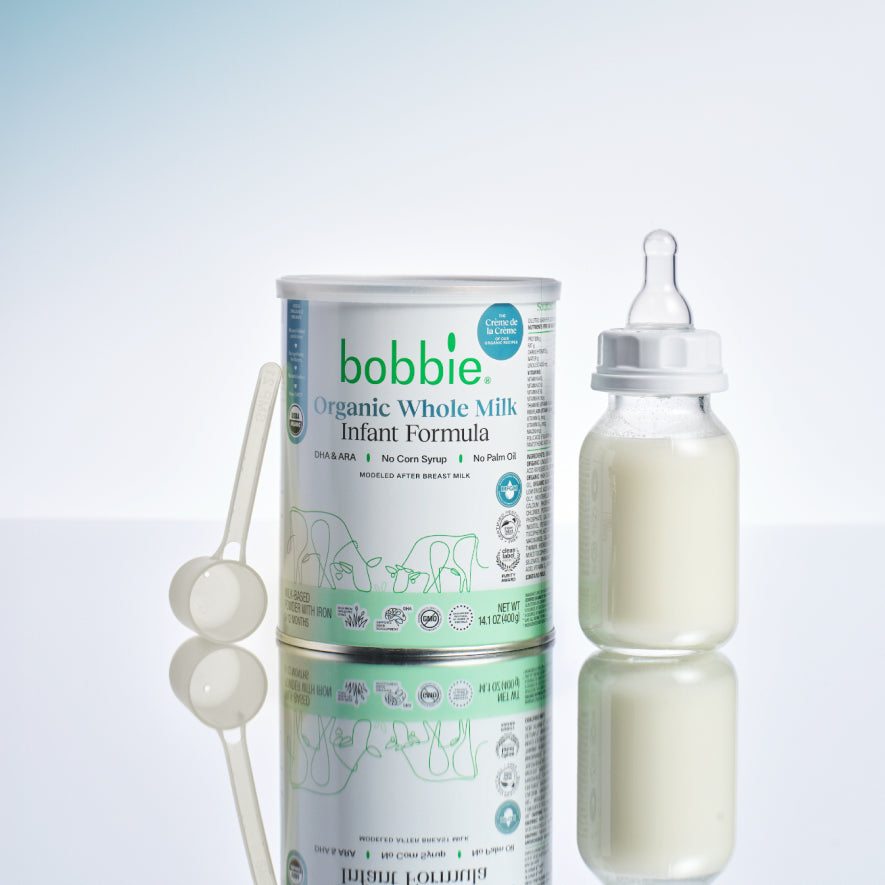
Shop Organic Whole Milk Infant Formula

The Pros and Cons of Glass Baby Bottles
Let’s break down what to know about using a glass baby bottle:
Pros
Glass bottles have been a trusted choice for generations, and for good reason. One of their biggest advantages is safety: they don’t leach chemicals, even when heated, giving many parents peace of mind. Glass is also durable and long-lasting when handled carefully, and it’s easier to sanitize compared with some plastics.
Because glass is non-porous, it’s less likely to retain odors or stains, which can make feeding time feel cleaner and fresher. For families prioritizing sustainability, glass bottles often align with eco-conscious values, since they can be reused for years and are fully recyclable.
Cons
That said, glass bottles aren’t without their trade-offs. They are heavier than plastic, which can make them trickier for parents on the go or for babies learning to hold their own bottles. They can break if dropped, though silicone sleeves or protective covers can help reduce this risk. Additionally, the glass may be hot to the touch if the bottle is heated in a bottle warmer.
Upfront costs are generally higher, and there are fewer design and size options available compared with plastic bottles. For older babies who are practicing self-feeding, glass may feel cumbersome, making plastic or silicone bottles more practical.
The Pros and Cons of Plastic Baby Bottles
Next, let’s explore the advantages and disadvantages of choosing a plastic baby bottle:
Pros
One of the biggest advantages of a plastic bottle is convenience: they’re lightweight, making them travel-friendly and easy for little hands to hold. Plastic bottles are also widely available and generally more affordable than glass, which can make stocking up easier and less expensive.
Another practical benefit is durability; there’s far less risk of breakage or shattering if a bottle is dropped, which can provide peace of mind in busy households. Plastic bottles also come in a wide range of designs, sizes and brands, giving parents plenty of options to find a style that works for them.
Cons
Over time, plastic bottles can wear down and develop scratches, which may harbor bacteria if not properly cleaned. This means they often need to be replaced more frequently than glass bottles. Even BPA-free plastics can gradually degrade, particularly when exposed to heat or repeated sterilization, which can affect both appearance and longevity.
Finding the Right Bottle for Your Baby and Your Life
Choosing the right bottle isn’t one-size-fits-all. And it often depends on your baby’s stage and your family’s lifestyle:
-
Newborns vs. older babies: For newborns, slow-flow bottle nipples and lighter bottles (whether small glass or plastic) can make feeding easier. As babies grow, larger bottles may be more appropriate, and it’s helpful to pick one that’s easy for them to hold.
-
Breastfeeding vs. bottle feeding: For families combining breastfeeding with bottle feeding, consider bottles with nipple shapes that mimic the breast, such as a gradually sloped nipple with a wide base. Anti-colic features can also help reduce fussiness and gas, making mealtime more comfortable for everyone.
-
Lifestyle: Families on the go may find plastic bottles lighter and easier to carry, while those at home often favor glass bottles for their easy cleaning and long-term durability.
A few other important factors to weigh include:
-
Whether you’re pumping and storing milk
-
Your baby’s or caregiver’s preference for a lighter bottle
-
Your comfort with cleaning and handling materials
Many families find a mix works best; using plastic for travel and glass at home, or switching depending on the situation. Ultimately, the best baby bottle is the one that fits both your little one’s needs and your family’s daily routine.
Sign up to get the scoop on feeding, sleep, poop, and so much more. By singing up for email, you are to receive marketing emails from Bobbie and can manage your email preferences or unsubscribe at anytime

Your go-to resource for all things new baby.
Cleaning and Sterilizing 101: What Every Bottle Needs
Keeping bottles clean is key for happy, healthy feedings. Here are a few best practices to follow, regardless of the type of baby bottle you choose:
-
Wash them with warm, soapy water or pop them in a bottle-safe dishwasher.
-
Sterilize using a bottle sterilizer, boiling water or steam bags — especially for newborns, preemies, or babies with less developed or compromised immune systems.
-
Inspect bottles regularly, replacing plastic ones if they show cracks, cloudiness or warping, and checking glass bottles for chips or cracks.
A little care goes a long way in making every feeding safe, clean and stress-free for you and your baby!
Glass vs. Plastic Baby Bottles FAQs
Still have questions? Here are answers to some of the most common questions parents ask about choosing the right baby bottle:
Do glass baby bottles retain heat longer than plastic?
Yes, glass bottles hold heat a little longer, keeping breast milk or infant formula warm for feeding. But always double-check the temperature before offering a feeding bottle to your baby.
What’s the best bottle type for pumped breast milk?
Both glass and plastic work well. Look for bottle nipples that mimic the breast and slow-flow options to help your baby transition smoothly between breastfeeding and bottle feeding.
How many bottles should I buy to start with?
It depends on how often you wash bottles. Many parents start with four to six bottles, plus a few extras for travel or unexpected spills.
What are other bottle alternatives to consider?
A silicone baby bottle is lightweight, flexible and safer if dropped. However, it may hold smells. A stainless steel bottle, on the other hand, is eco-friendly and durable. But, because they’re typically opaque, it makes it harder to see milk levels; plus, options may be limited.
Can you reduce exposure to microplastics when using plastic bottles?
Yes — a study in Nature Food shows parents can lower their baby’s exposure to microplastic particles with just two simple steps:
- Let plastic bottles cool completely after washing or sterilizing.
- Rinse them at least three times with sterilized water that's cooled to room temperature.
What bottle type do pediatricians and lactation consultants recommend?
Pediatricians and lactation consultants focus on safety and proper cleaning rather than the bottle material. What really matters are the nipple shape, flow and tuning into your baby’s feeding cues. Don’t hesitate to reach out to your healthcare provider for personalized guidance when needed.
What bottle features should I look for?
Look for bottles with:
-
Anti-colic vents to help reduce gas and fussiness
-
Wide-neck openings that make cleaning and filling easier
-
Nipples designed for your baby’s age and feeding pace
Some bottles also offer slower or faster flow options, which can make transitions smoother and more comfortable.
What safety tips do I need to consider when using plastic bottles?
Never warm bottles in a microwave, replace scratched or cloudy bottles, and remember even BPA-free bottles degrade over time, so swap them out when showing signs of wear.
Whichever Bottle You Choose, You’ve Got This
Choosing a bottle doesn’t have to come with guilt or pressure — many families find that using both glass and plastic works best for different situations. Safe feeding comes down to proper cleaning, storage and paying attention to your baby’s cues. And the right choice is the one that helps you feed confidently and comfortably.
Bobbie is here to support your feeding journey; whatever that looks like. Shop Bobbie Infant Formula or explore more resources from Bobbie today.
The content on this site is for informational purposes only and not intended to be a substitute for professional medical advice, diagnosis or treatment. Discuss any health or feeding concerns with your infant’s pediatrician. Never disregard professional medical advice or delay it based on the content on this page.








